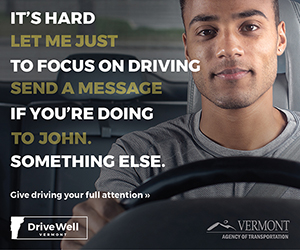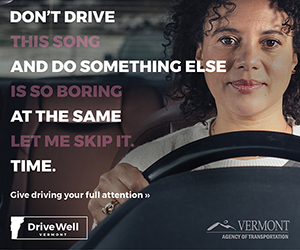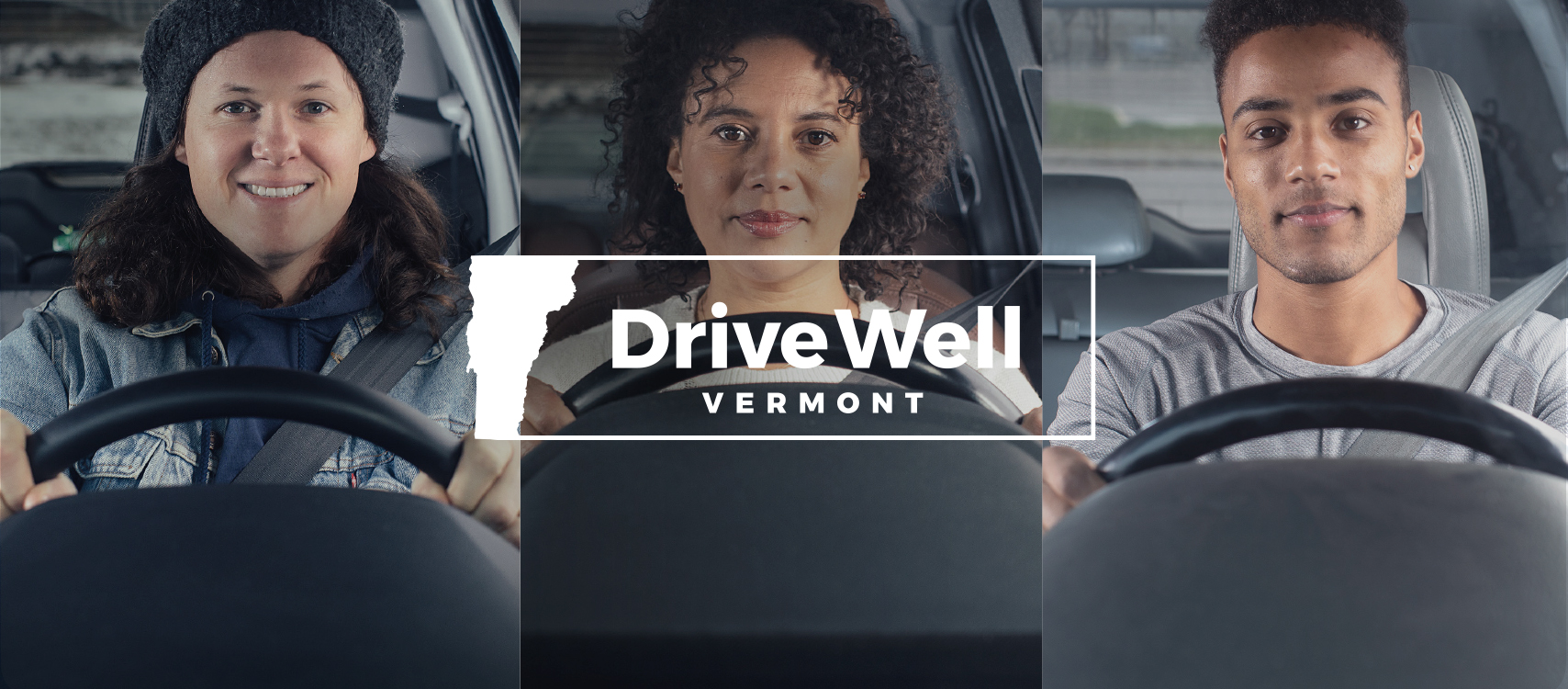Check out our new Drive Well Vermont website.
Here in Vermont, we try to look out for each other. So when you drive without being distracted, it helps all of us.
What is Distracted Driving?
Distracted driving is defined as driving while performing any other activity, whether visual, manual or cognitive, that could take a person’s attention away from the primary task of driving. Things like texting, eating snacks, or changing the radio station can all be considered to be distracted driving behaviors.
How you can be an engaged driver.
Take steps to avoid distracted driving behaviors before you even start your journey—whether that’s a quick trip to the store or a long road trip.
- Put your cell phone away, out of sight and out of reach
- Program your phone to send auto-responses letting friends/family know you are driving and not able to answer the phone
- Stay focused on your driving and what’s ahead of you
- Be aware of other motorists around you
- Pre-program your GPS, or plan your route before leaving
- Choose your podcast or playlist ahead of time
- Eat your snacks before leaving the house, or take a break during a longer journey to have a meal
What does engaged driving mean for you and your community?
By practicing engaged driving when you’re behind the wheel you show that you care about your own safety—as well as the safety of your family, your friends and your community. You also help ensure that you, and everyone who is with you, will get to your destination safely.
Texting can wait - it's the law.
Vermont’s hands-free cell phone and texting laws have been in effect since October 2014, and ban all drivers from using hand-held cell phones, pagers, PDAs, laptops, games, or portable hand-held devices while driving. Drivers are not allowed to talk on a cell phone unless using a hands-free device, nor read, write, or send text messages, email, or use the Internet while operating a motor vehicle on a Vermont roadway. For more information on Vermont’s cell phone and texting laws click here.
Additional Recourses
National Highway Traffic Safety Administration (NHTSA)
Centers for Disease Control and Prevention (CDC)
Insurance Institute for Highway Safety (IIHS)



